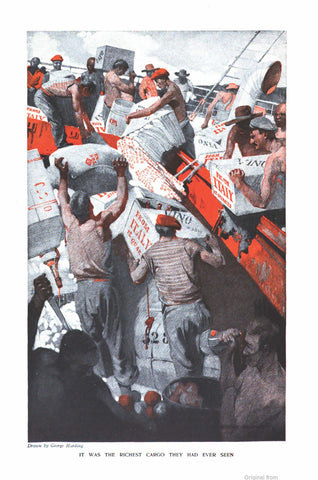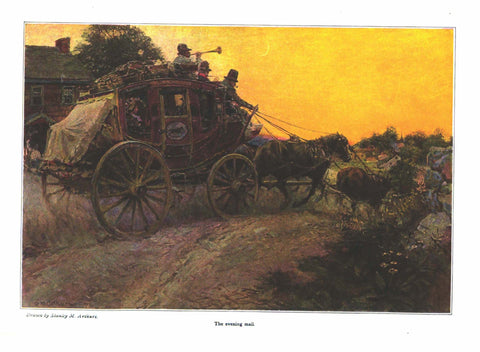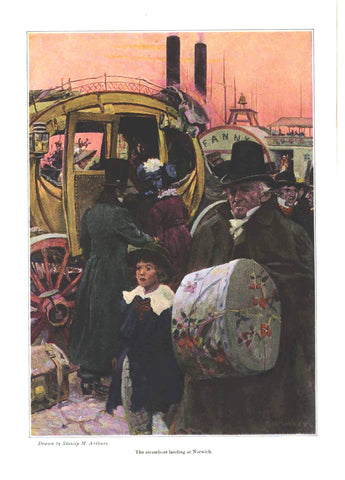Frederic Remington illustration from "The Book of the American Indian" (1923): rare, beautifully framed antique
$290.00
"An Indian Brave"
As reproduced in The Book of the American Indian
by Hamlin Garland
New York. Harper & Brothers. 1923.
Original Illustration for A Bunch of Buckskin
by Frederic Remington.
New York. R.H. Russell, Publisher. 1901.
IMAGE INFORMATION
Image Size: H 12.00” x W 9.00”
Matted & Framed: H 19.50” x W 16.50”
Framed Price: $300.00
Whiteglove packaging and shipping approximately $32.00
Hamlin Garland’s Book of the American Indian is like Howard Pyle’s Book of Pirates in the sense that the text and illustrations in both books were created years before the books were published by artists who had been dead for more than a decade.
The three colorized illustrations in Garland’s narrative (two dozen other illustrations are in B&W) appeared originally in a portfolio of eight paste drawings Remington called A Bunch of Buckskin. Remington’s collection was published by R.H. Russell in 1901. The year before, Russell had published an edition of Washington Irving’s History of New York from the Beginning of the World to the End of the Dutch Dynasty with illustrations by Maxfield Parrish. The year after publishing Remington’s portfolio, Russell publish Charles Dana Gibson’s The Social Ladder, which featured 84 witty social commentary cartoons.
Merle Johnson had combed through old magazines to find pieces Howard Pyle had written about pirate. Garland deviated from this pattern by combing through files of his own work to find stories about The Old West. Written 1890 1905, Garland’s stories recall the final conquest of America’s Plains Indians Native American Indian in transition. “Based on ten years of visits to reservations in the American West,” one reviewer explains, Garland’s “stories are of interest for readers today in part because they illustrate a sincere and well-intentioned white reformer coming to understand a culture radically at odds with his own and discovering in the process that his own culture is less ‘advanced’ than he had supposed.” In this sense, Remington’s austere illustrations are a good match for Garland’s text.








